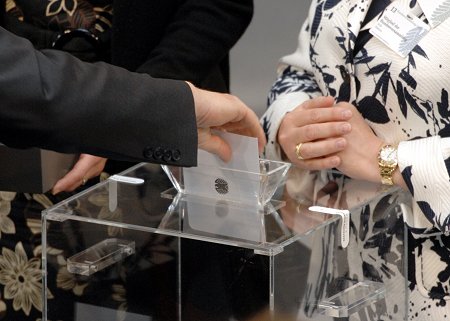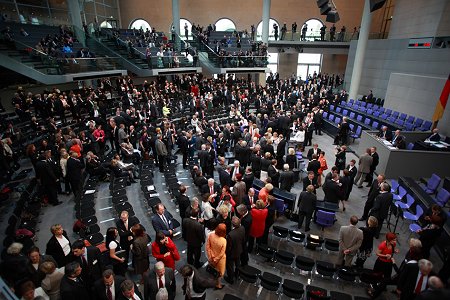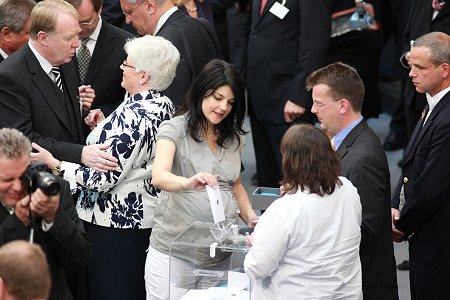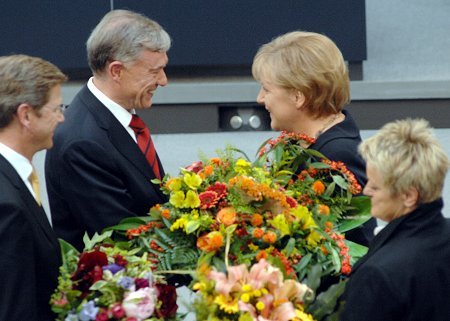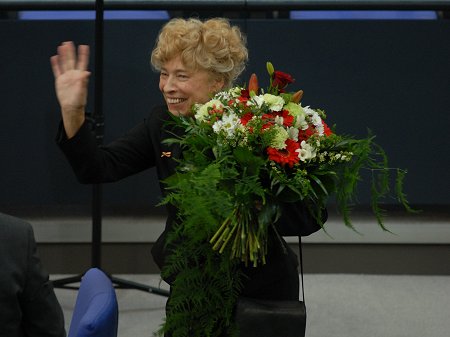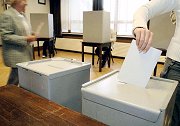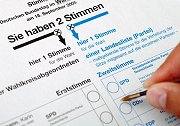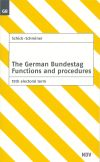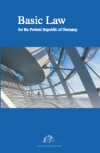The Federal Convention and the Bundestag elections
The year 2009 will see two important national elections take place in Germany: the election of the Federal President and elections to the Federal Parliament - the German Bundestag.
On 23 May 2009, the Federal President was elected by the Federal Convention, which comprised 1224 members. On 27 September 2009, around 62.2 million German citizens - 32.2 million women and 30 million men - will be entitled to vote in the Bundestag elections.
Federal President Professor Horst Köhler has been confirmed in office, winning 613 votes in the Federal Convention’s first ballot. His fellow candidate Professor Gesine Schwan won 503 votes. Peter Sodann received 91 votes. Köhler accepted his election and promised: "I will continue to give my best." His second five-year term of office will begin on 1 July.
It doesn't take long to mark two crosses on a ballot paper, but they are of immense significance. By marking these crosses, the voter is taking the central decision in a democracy: who should govern?
This right to participate in elections is guaranteed by the constitution: the Basic Law stipulates that "All state authority is derived from the people." Article 38 states that elections must be "general, direct, free, equal and secret".
Every schoolchild in Germany is taught that elections to the German Bundestag are general, direct, free, equal and secret. But what does that mean in practice?
A scene at a polling station: an assistant takes the identity card and poll card of a teenager with a punk hairstyle, nodding as he locates the name in the electoral register. An older man in a suit is standing in a polling booth, only his legs visible to those waiting outside; he marks a cross next to the name of one of the main parties. Having completed and folded her ballot paper, a nun casts it into the ballot box.
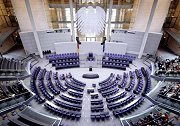
On 27 September 2009, when Germany goes to the polls for the Bundestag elections, everyone will have two votes to cast. The first vote is used to elect a constituency candidate, in other words, the politician who should be sent to Parliament to represent the voter's region. The second vote determines the relative strengths of the parties in the Bundestag.
Around 62.2 million Germans living in the territory of the Federal Republic of Germany will be entitled to vote in the elections to the 17th German Bundestag on 27 September 2009, the Federal Statistical Office has estimated: 32.2 million women and 30 million men. Hence the number of people entitled to vote will be slightly higher than during the 2005 Bundestag elections, when it amounted to about 61.9 million.


